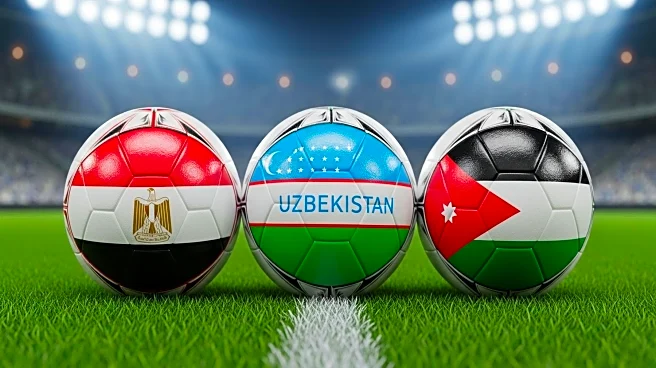What is the story about?
What's Happening?
The 2026 FIFA World Cup, set to be hosted by Canada, Mexico, and the United States, will feature an expanded 48-team format. This change has allowed nations that have historically struggled to qualify for the finals to secure spots. Egypt, Uzbekistan, and Jordan are among the underdog nations that have successfully qualified. Egypt, led by star player Mohamed Salah, is in a strong position in Africa, benefiting from the continent's increased automatic qualification spots. Uzbekistan and Jordan have made history by qualifying through the Asian Football Confederation, which now offers more berths. These developments highlight the opportunities provided by the expanded format.
Why It's Important?
The inclusion of Egypt, Uzbekistan, and Jordan in the 2026 World Cup underscores the impact of the expanded format, which offers more opportunities for nations to compete on the world stage. This shift could lead to increased global interest and investment in football, particularly in regions like Central Asia and the Middle East. The success of these underdog teams may inspire other nations to enhance their football programs, potentially leading to a more diverse and competitive international football landscape. Additionally, the presence of these teams could boost tourism and economic activity in the host countries.
What's Next?
As the 2026 World Cup approaches, these nations will prepare to compete against some of the world's best teams. Their participation may lead to increased support and development of football infrastructure in their home countries. The expanded format could also prompt FIFA to consider further changes to the qualification process, potentially increasing the number of teams in future tournaments. Fans and stakeholders will be watching closely to see how these underdog teams perform on the global stage.















